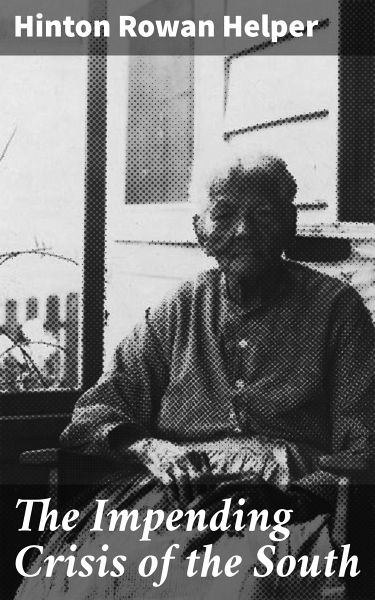
The Impending Crisis of the South (eBook, ePUB)
Enriched edition. How to Meet It
Kommentar: Dalesworth, Keaton / Redaktion: Good Press
Versandkostenfrei!
Sofort per Download lieferbar
1,99 €
inkl. MwSt.
Weitere Ausgaben:

PAYBACK Punkte
0 °P sammeln!
In "The Impending Crisis of the South," Hinton Rowan Helper delivers a poignant and scathing indictment of the institution of slavery, intertwining a meticulous analysis of the socio-economic conditions of the Southern United States in the mid-19th century. Written in a compelling and urgent literary style, Helper employs a mix of statistical evidence, personal observations, and vivid moral arguments to argue that slavery is not only a social injustice but also an economic hindrance to the progress of the South and the nation as a whole. This work serves as both a powerful abolitionist manifes...
In "The Impending Crisis of the South," Hinton Rowan Helper delivers a poignant and scathing indictment of the institution of slavery, intertwining a meticulous analysis of the socio-economic conditions of the Southern United States in the mid-19th century. Written in a compelling and urgent literary style, Helper employs a mix of statistical evidence, personal observations, and vivid moral arguments to argue that slavery is not only a social injustice but also an economic hindrance to the progress of the South and the nation as a whole. This work serves as both a powerful abolitionist manifesto and a critical commentary in the context of an America on the brink of Civil War, addressing the complexities of regional disparities that fueled deep-seated divisions in the nation. Hinton Rowan Helper, a Southern-born white man from North Carolina, was deeply affected by the realities of his environment, witnessing first-hand the detrimental effects of slavery on both the enslaved and the Southern white populace. His abolitionist sentiments were radical for his time, shaped by a conviction that slavery not only dehumanized its victims but also stifled the economic potential of the South. "The Impending Crisis" reflects Helper's belief that an honest examination of slavery's realities could catalyze meaningful change. This pivotal work is essential reading for those interested in antebellum American history, socio-economic critiques, and the moral dilemmas surrounding slavery. Helper's unique perspective challenges readers to confront uncomfortable truths, making it invaluable for scholars and general readers alike who wish to understand the historical context surrounding America's greatest moral conflict. In this enriched edition, we have carefully created added value for your reading experience: - A succinct Introduction situates the work's timeless appeal and themes. - The Synopsis outlines the central plot, highlighting key developments without spoiling critical twists. - A detailed Historical Context immerses you in the era's events and influences that shaped the writing. - A thorough Analysis dissects symbols, motifs, and character arcs to unearth underlying meanings. - Reflection questions prompt you to engage personally with the work's messages, connecting them to modern life. - Hand-picked Memorable Quotes shine a spotlight on moments of literary brilliance. - Interactive footnotes clarify unusual references, historical allusions, and archaic phrases for an effortless, more informed read.
Dieser Download kann aus rechtlichen Gründen nur mit Rechnungsadresse in A, B, BG, CY, CZ, D, DK, EW, E, FIN, F, GR, H, IRL, I, LT, L, LR, M, NL, PL, P, R, S, SLO, SK ausgeliefert werden.













